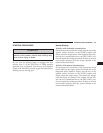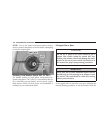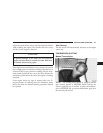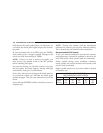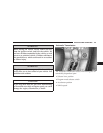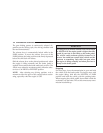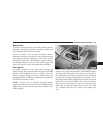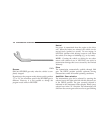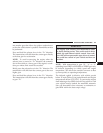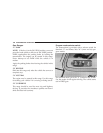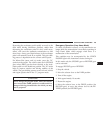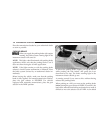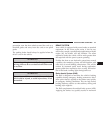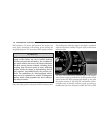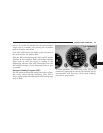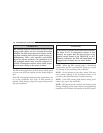
into another gear that allows for quicker acceleration or
to slow the vehicle down is possible. Downshifts can also
be performed.
Press and hold the selector lever in the “D-” direction.
The transmission will shift from the current gear directly
to the best gear for acceleration.
NOTE:
To avoid overrevving the engine when the
selector lever is moved in “D-” direction, the transmis-
sion will not shift to a lower gear if the engine’s revolu-
tions per minute limit would be exceeded.
Briefly press the selector lever in the “D+” direction. The
transmission will shift from the current gear to the next
higher gear.
Press and hold the selector lever in the “D+” direction.
The transmission will shift from the current gear directly
to gear “D.”
WARNING!
On slippery road surfaces, never downshift in order
to obtain braking action. This could result in drive
wheel slip and reduced vehicle control. Your vehi-
cle’s ABS will not prevent this type of loss of control.
You could lose control of your vehicle and have an
accident.
NOTE:
With transmission in gear “D,” “4,” or “3,”
upshifting from FIRST to SECOND to THIRD gear may
be delayed, depending on vehicle speed and engine
temperature. This allows the catalytic converter to heat
up more quickly to operating temperatures.
The delayed upshift is effective with vehicle speeds
below 31 mph (50 km/h) at partial throttle and engine
temperatures below 95°F (35°C). To prevent the engine
from laboring at low RPM when driving uphill or with
your vehicle heavily loaded, the automatic transmis-
sion will downshift when necessary to maintain en-
gine RPM within the best torque range.
STARTING AND OPERATING 127
5



